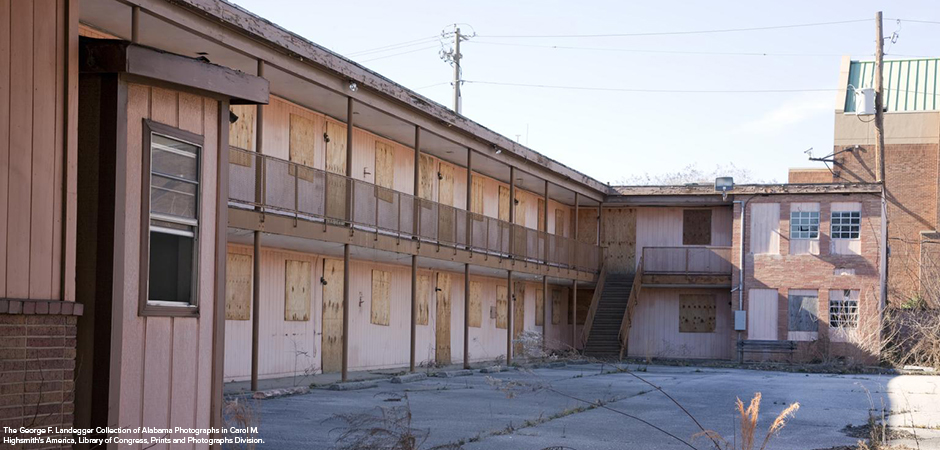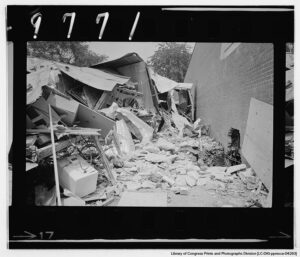
The renovation of an important building in the American civil rights movement is nearly complete. The A.G. Gaston Motel in Birmingham, Alabama is now a part of the Birmingham Civil Rights National Monument. The motel served as a safe place for African American travelers who were discriminated against in the American South during the 1950s and 1960s. It also functioned as a meeting place for civil rights leaders such as Dr. Martin Luther King, Jr., during the 1963 civil rights protests in Birmingham. Most importantly, the renovation preserves the motel and highlights the role of business leader A.G. Gaston in the civil rights movement.
A.G. Gaston
Arthur George (A.G.) Gaston was born into poverty in 1892 in Demopolis, Alabama. Gaston graduated from Tuggle Institute in Birmingham. In 1923, he started the Booker T. Washington Insurance Company with $500. (In 2024, that $500 would be valued at approximately $9,000.) Over time, he founded more than a dozen businesses that served African Americans, including a funeral home, bank, and pharmacy. He developed a business empire worth more than $30 million.
After the American Civil War through the 1960s, African Americans in Alabama and throughout the South were segregated, or separated from, white people. African Americans could not use the same public facilities as white people. They could not attend school with white people, and they faced barriers when voting in elections. They faced discrimination throughout their daily lives. Gaston created businesses to provide essential goods and services to Birmingham’s African American community. For example, Gaston’s bank loaned money to African Americans, enabling them to build homes, educate their children, and start businesses of their own.
The A.G. Gaston Motel
Gaston opened the A.G. Gaston Motel in 1954 in Birmingham. It was listed in the Negro Motorist Green Book Travel Guide. This book helped African Americans who were traveling in the segregated South find restaurants and rooms that were safe, clean, and welcoming.
The restoration project reveals the motel’s original 1954 design, featuring vibrant orange doors and turquoise balcony rails. A.G. Gaston modeled the design of his motel after Holiday Inns. He even installed air-conditioners in the 32-room motel, which was an uncommon luxury for many 1950s motels.

The A.G. Gaston motel was bombed in 1963 during the civil rights protests in Birmingham. The motel was repaired and continued to operate, but it struggled to stay in business. New laws ended segregation in hotels. This welcome change offered new options for African American travelers. But the increased competition was challenging for the Gaston Motel. It eventually closed in the 1980s.
In recent years, efforts by the city of Birmingham and the National Park Service have preserved not only the historic motel but also highlighted A.G. Gaston’s contributions to empowering Birmingham’s African American community. Birmingham Mayor Randall Woodfin acknowledges A.G. Gaston as a vital figure in the history of Birmingham. Woodfin praised Gaston as someone who supported a self-sufficient African American community. The motel, along with other landmarks in the Birmingham Civil Rights National Monument, are being considered for designation as a UNESCO World Heritage site. This recognition underscores the motel’s importance in preserving the struggles and triumphs of African Americans.
